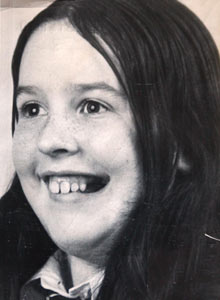By Erica Laster Impunity Watch Reporter, North America
NEW YORK, United States – U.N. officials have been actively discussing the complete abolition of nuclear weapons. “They all understand that nuclear weapons make us less safe, not more,” said U.N. Secretary General Ban Ki-moon at an exhibit and presentation by the Mayors of Peace at U.N. headquarters in New York last Thursday. In the wake of the meltdown of Japanese nuclear plants following the tsunami, human rights groups have called for an end to the sale, use and production of nuclear weapons across the World.

Mayors of Peace began working alongside the United Nations in 1991 to confront the difficult task of nuclear weapon bans. It now operates in 150 countries and over 4,500 cities in the International community.
Accompanied by survivors of the Atomic bombing of Hiroshima and Nagasaki in 1945, Ban Ki-moon indicated the necessity of nuclear disarmament.
Just one day before, the Simons Foundation and the International Association of Lawyers against Nuclear Arms (IALANA) released the Vancouver Declaration which declared that nuclear weapons are “incompatible” with international humanitarian law. Further, as weapons of mass destruction, they are universally prohibited in warfare.
Specifically, the harm inflicted on civilians from nuclear heat and radiation has been widely discussed and argued in the community as a violation of international law by experts and public diplomacy officials.
The declaration’s signers cite the International Court of Justice’s advisory opinion of 1996, arguing that “It cannot be lawful to continue indefinitely to possess weapons which are unlawful to use or threaten to use, are already banned for most states, and are subject to an obligation of elimination.” This obligation to eliminate nuclear arsenals stems directly from the Nuclear Non-Proliferation (NPT) of 1970. According to the NPT, states possessing weapons agreed to disarm and destroy their supply of weapons and those not in possession agreed not to acquire them.
93 percent of the world’s stockpile of nuclear weapons are possessed by the United States and Russia. The remaining nuclear powers include China, France, Israel, Britain, India and Pakistan.
Many have derailed, prolonged and completely ignored their agreement to disarm and reduce their nuclear stockpiles. Some, such as Dr. Jennifer Simons, Simons Foundation President, believe that “the possession of nuclear weapons should be an international crime.”
Despite a recent US-Russia Arms Treaty approved by the Barack Obama administration which confirms the countries intent to disarm, the United States is still allowed to keep 3,500 weapons after the year 2020. John Burroughs of the Lawyer’s Committee on Nuclear Policy is hopeful that despite the long haul, the peace movement will help crystallize and garner support for the abolition of nuclear weapons.
For More Information Please Visit:
IPS – Public Momentum Builds Against Nukes – 25 March 2011
Mayors For Peace – Powerful earthquake, huge tsunami and nuclear accident in Japan – 11 March 2010
NY Times – Nuclear Weapons – 22 December 2010


